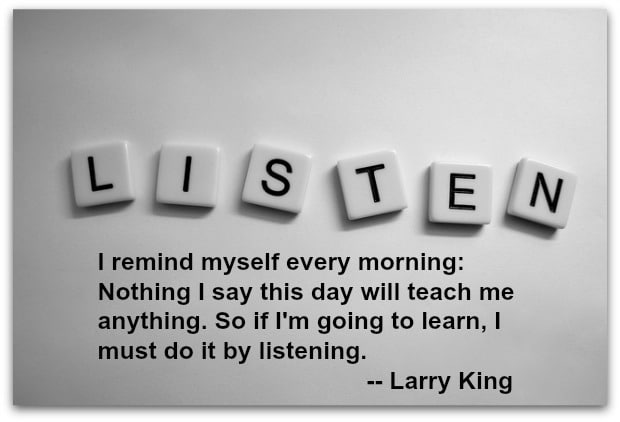Last Updated on June 25, 2021
Today’s guest post is republished from June 22, 2016. Today’s post is written by Scott Petri, a High School History Teacher in California. Follow him on twitter @scottmpetri.
Thirty-two years ago, Donald E. Powers wrote Considerations for Developing Measures of Speaking & Listening. It was published by the College Board, which expresses how important these measures are to a student’s academic success, particularly in their Advanced Placement programs, yet has not validated any standardized tests to measure these skills. This synthesis on some of the research on listening offers advice to teachers enrolled in our MOOC Teaching Speaking & Listening Skills.
Research shows that students can listen 2-3 grade levels above what they can read. Listening while reading helps people have successful reading events, where they read with enjoyment and accuracy. Listening while reading has been shown to help with decoding, a fundamental part of reading. The average person talks at a rate of about 125 to 175 words per minute, while we listen and comprehend up to 450 words per minute (Carver, Johnson, & Friedman, 1970).

Listening has been identified as one of the top skills employers seek in entry-level employees as well as those being promoted. Even though most of us spend the majority of our day listening, it is the communication activity that receives the least instruction in school (Coakley & Wolvin, 1997). On average, viewers who just watched and listened to the evening news can only recall 17.2% of the content.
Listening is critical to academic success. Conaway (1982) examined an entire freshman class of over 400 students. They were given a listening test at the beginning of their first semester. After their first year of college, 49% of students scoring low on the listening test were on academic probation, while only 4.42% of those scoring high on the listening test were on academic probation. On the other hand, 68.5% of those scoring high on the listening test were considered Honors Students after the first year, while only 4.17% of those scoring low attained the same success.
Students do not have a clear concept of listening as an active process that they can control. Students find it easier to criticize the speaker as opposed to the speaker’s message (Imhof, 1998). Students report greater listening comprehension when they use the metacognitive strategies of asking pre-questions, interest management, and elaboration strategies (Imhof, 2001). Listening and nonverbal communication training significantly influences multicultural sensitivity (Timm & Schroeder, 2000).
Understanding is the goal of listening. Our friend Erik Palmersuggests before students engage in purposeful listening, their teachers should tell them what to attend to. We need to teach students what to respond to, how to respond, and when to respond. For example, today we are going to listen to five speeches. For each speech, we are only listening for LIFE. After each speaker finishes, clap, then take a minute to evaluate the level of passion they put into their speech. After that write down three suggestions on how they could improve the LIFE in their speech (i.e., instead of emphasizing:you stole my red hat, try stressing, you stole my red hat).
A classroom teacher who reads Powers (1984) College Board study will understand that speaking, listening, reading and writing are all tightly correlated. Empirically measuring oral communication skills requires many hours of assessment on small, controlled populations. It is the opposite of what we experience in public schools where it is not feasible for us to precisely measure each skill. The important takeaway here is that teachers need to prepare their students to actively listen, avoid distractions, and teach listening and speaking with core academic content by training students to evaluate how well various speaking functions are accomplished by their classmates. While there are reliability issues with classroom peer review models, the benefits of “learning by evaluation” far outweigh the negatives.
References:
https://listenwise.com/research
http://www.skillsyouneed.com/ips/listening-skills.html
